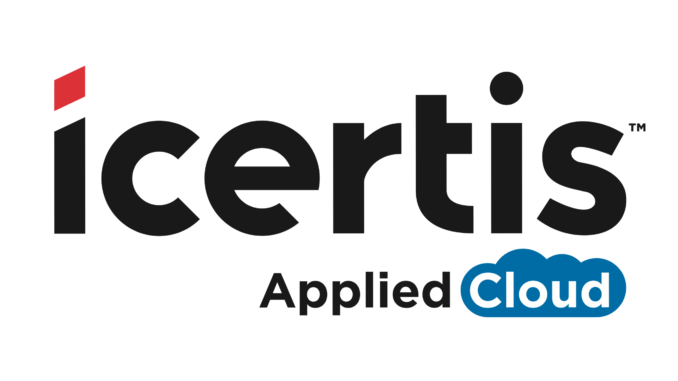
You’re a contract lifecycle management (CLM) platform and you’ve just been given $115m by investors. What do you spend the money on? That’s a nice problem to have if you are a legal tech company, and it’s one that Icertis now has (see yesterday’s news article).
Understandably, the company – which is now valued at over $1 billion and works across several industry sectors – will spend a big chunk of that $115m on building out its sales function on a global basis and further developing its core CLM offering. But, what caught Artificial Lawyer’s eye was the following statement from the Seattle-based company:
‘The new funds will be used to:
- Accelerate the infusion of artificial intelligence and advanced cognitive services into the ICM platform to solve previously intractable enterprise contract management challenges that can be uniquely addressed only by these new technologies.
- Extend the Icertis Blockchain Framework, the world’s first blockchain framework integrated with an enterprise contract management platform, to create practical and transformative solutions to solve real-world business challenges including supply chain transparency, certification compliance, outcome-based pricing and more.
- And….finance opportunistic acquisitions tied to commercial value generation in contracting.’
First, interesting to see that some of the cash will be used to buy up other contract-related businesses, which certainly covers a wide swathe of legal tech companies and startups.
Next, the AI bit. Artificial Lawyer has to admit that it didn’t know much about Icertis until recently and it was fascinating to see that it’s been busy building its own AI applications that are embedded in the wider CLM system. It’s probably fair to say that at present these remain narrow parts of the offering, as compared to, for example, ContractPodAi, which as the name explains, is putting the AI review part of its offering front and centre, even if it also can be classed as a CLM platform.
Icertis explains that it now has what it calls intelligent character recognition and integration with productivity tools like Microsoft Office that ‘make it simple to bring contracts into the platform and to identify clauses and terms that deviate from your own’. I.e. this is really a core aspect of many legal AI tools in the market.
Incidentally the CLM can also develop risk dashboards and has a clause library function for rapid document creation.
All in all an impressive collection of features – and rather similar to what several companies are now trying to put together.
But, now the blockchain bit. Icertis is taking blockchain tech very, very seriously. They’ve already developed several applications and see its data recording and what we could call ‘proof stamping’ properties as highly useful for working with large companies with complex supplier chains, many of which normally use a lot of siloed data stores and a myriad of contracts to keep those supply lines going.
Artificial Lawyer asked the company if they could expand on this and they replied:
‘Here are a few examples of how we are expanding the application of blockchain and distributed ledger technology to contract management:
- Using Microsoft Azure Blockchain Workbench to allow rapid prototyping and provisioning of blockchain solutions on the Icertis Blockchain Framework for Icertis Contract Management (ICM) platform global customers.
- Leveraging the ecosystem of Service Bus, Azure Active Directory, Logic Apps and other components in the Azure Blockchain Workbench environment in combination with the Icertis Blockchain Framework to help build the foundation of Icertis’ next generation smart contract platform.
- Connecting Azure Cognitive Services components and the Icertis Blockchain Framework with the ICM platform to provide business solutions that leverage AI/ML and blockchain technology including compliance, certification, provenance tracking and outcome-based pricing ICM apps.
- With the expanded capabilities, customers will be able to apply blockchain technology to help address additional business processes requiring transparency including measuring supplier diversity, tracking product provenance and executing outcome-based pricing.’
Clearly then they are really looking at this tech as something that will become a central pillar of their offering. And that is interesting in itself. Icertis has a lot of serious techies. They see the value of the tech – and so do their clients, a case in point being Mercedes-Benz.
Mercedes (owned by Daimler) is now running a major pilot with Icertis on how to use blockchain tech to provide a secure and cost-effective record of whether their many suppliers around the planet have provided all the necessary contracts to prove they are compliant with matters such as sustainability, environmental rules, and working conditions.

The car giant said in a statement: ‘Daimler requires its direct suppliers to vigorously pass on and control standards and contractual obligations with regard to working conditions, human rights, environmental protection, safety, business ethics and compliance within the supply chain. The Blockchain prototype allows a transparent mapping and understanding of this transmission across the entire supply chain.’
They go on to explain: ‘Should one of the sub-suppliers deviate from the contractual obligations, this becomes visible in the Blockchain, similar to a secure accounting system.’
This is still a pilot and feedback is being obtained, but Icertis and the clients seem bullish. For example, Wilko Stark, Member of the Divisional Board of Management Mercedes-Benz Cars, said: ‘Blockchain technology … could affect nearly the entire value chain. Global supply chains are becoming increasingly complex [and so we are doing this with the] aim of increasing transparency beyond our direct suppliers.’
So, there you go.
If we take it as read that a company like Icertis, which has everything riding on its ability to provide value to some very sophisticated and demanding corporates, is engaged in major blockchain projects – and wants to invest more money into them – then perhaps we really are getting to the ‘normalisation’ point at last?
One last thought, whichever technology companies use to better understand the contractual flow connected to their suppliers, it’s an area that is certainly burning red hot at the moment in terms of demand. Large businesses are as worried about compliance as banks are. They want contractual proof, often from suppliers spread across the planet, each with their own way of doing things.
Whichever tech is used here, there is a growing market opportunity for any companies that can provide an effective and cost efficient solution. That said, if you speak to blockchain experts they’ll tell you they already have the best solution.